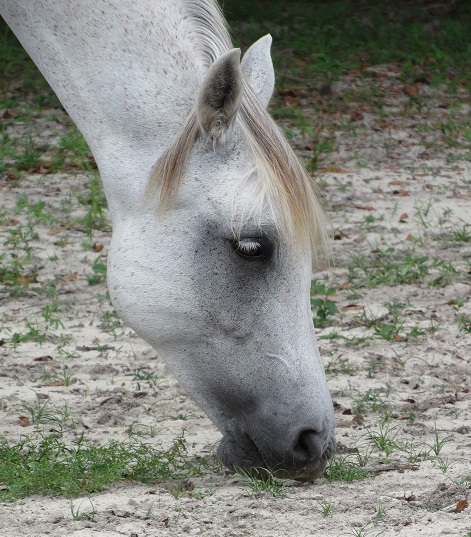Sand in the intestines
When too much sand comes in, it goes down into the intestine and it will become more difficult to get rid of it. The peristalsis (the squeezing motion of a bowel, among other things, that causes food to advance) of the intestines will be impeded. This can cause clogging and the sand will accumulate even more. This in turn can cause gas formation.
As the water contained in the bowel is pushed out, the blockage can eventually become rock hard.
In addition, sand damages the mucous membrane in the intestine. The digestion and absorption of food are disturbed. This can lead to diarrhea, emaciation and other unpleasant consequences. There have been cases where there were as much as 25 – 50 kg of sand in the intestines!
To ensure that sand is properly disposed of, it is wise to give a course of psyllium regularly. This fiber binds sand to itself and disposes of it through the manure.
The best thing, of course, is to try to prevent larger amounts of sand from accumulating in the intestines.

For example, by supplementing hay on the meager pasture, make sure that it is eaten from the ground as little as possible. Feed from a feed barrel or on concrete slabs. Some horses continue to prefer the sparse blades of grass to supplemental feed, in which case regular treatment to get the sand out of their intestines is very important.

One can also test oneself to see how much sand is in the horse’s manure, thus preventing worse.
This can be done very simply by dissolving manure in water in a long glove. The sand will sink down into the fingers of the gloves.
Note that even if there is no sand in the glove this does not immediately mean that the horse does not have sand in its intestines. In fact, sand is released to the manure in fits and starts. So it is important to repeat this test a few times!
Horses that lick/eat a lot of sand are often deficient in, for example, vitamins and minerals.
In addition to treating the sand in the intestines, it is also important to see what deficiencies there are so that they can be supplemented.
